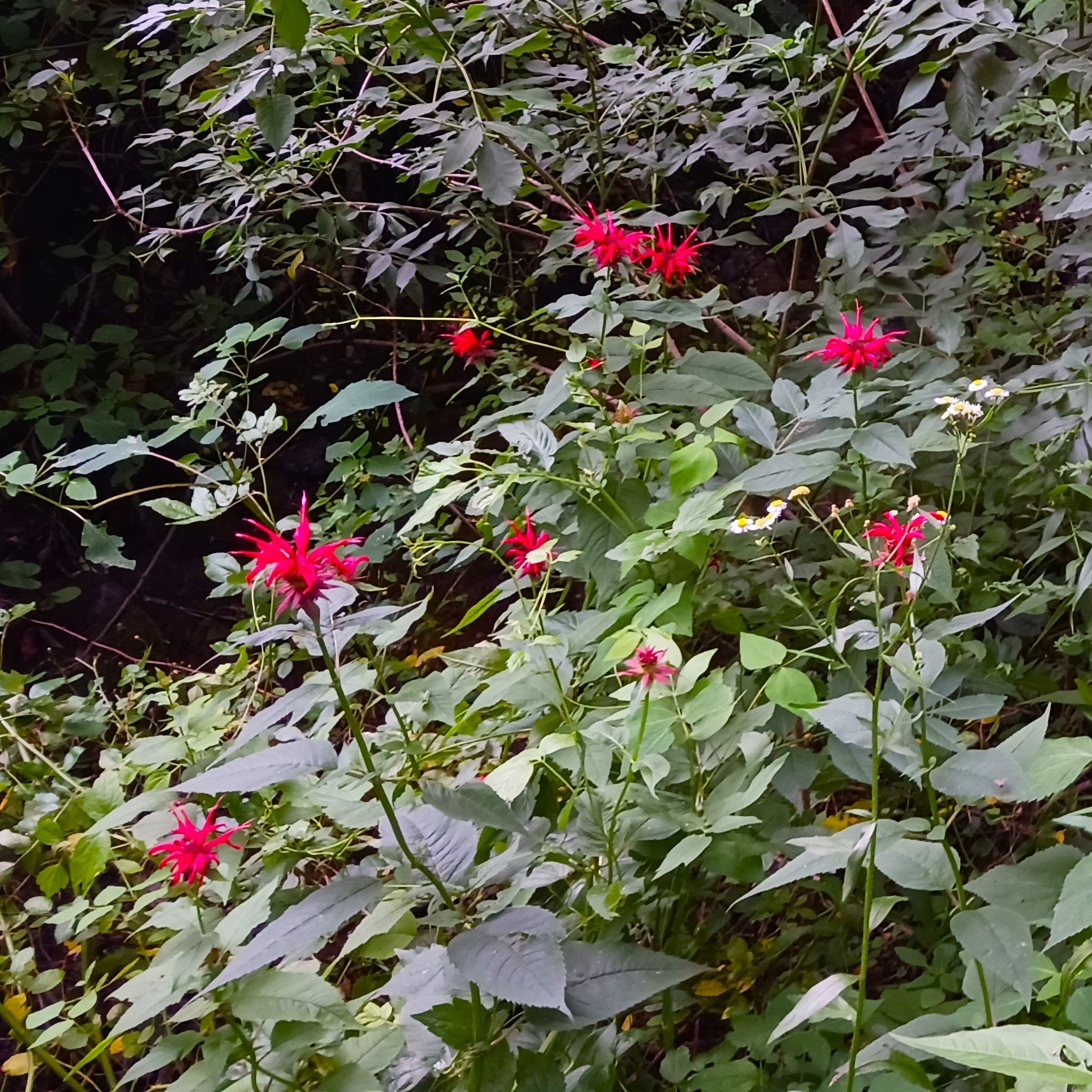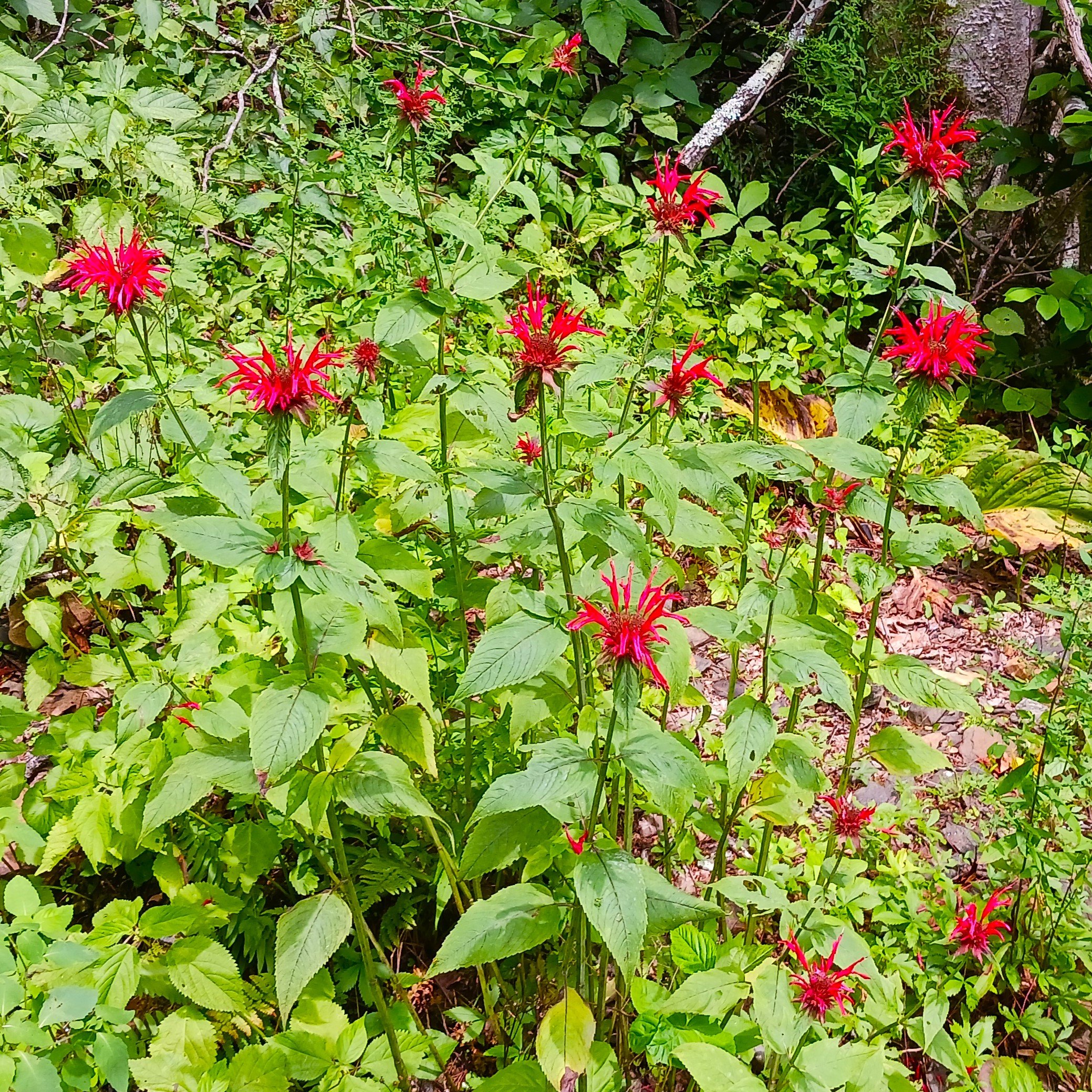Monarda punctata (Spotted Bee Balm) - GA Ecotype
Monarda punctata has some of the most unusual blooms of our native perennial wildflowers, and is a great summer addition to sunny gardens with medium to dry soils. It is one of the most drought tolerant Monarda species and is a vital plant for many pollinators.
Monarda punctata has some of the most unusual blooms of our native perennial wildflowers, and is a great summer addition to sunny gardens with medium to dry soils. It is one of the most drought tolerant Monarda species and is a vital plant for many pollinators.
Monarda punctata has some of the most unusual blooms of our native perennial wildflowers, and is a great summer addition to sunny gardens with medium to dry soils. It is one of the most drought tolerant Monarda species and is a vital plant for many pollinators.
If you’re looking for a Monarda species that can tolerate hot, dry conditions then Monarda punctata is the plant for you! Spotted Bee Balm, also called Horsemint, has unique flowers colored orange-yellow with spots and neon pink sepals that attract pollinating insects from near and far. The flowers appear as early as June and as late as September, blooming in segments up the 4’ tall branching stalks. Like related species these plants have square stems, long-lived flowers, and a spicy-herbal fragrance to the leaves. Spotted Bee Balm is adapted to prairies and dry forests, particularly in well-draining soils in the Piedmont and Coastal Plains regions. It is tolerant of high temperatures and drought conditions, especially when established. This species can form colonies over time but is not considered weedy and is easy to divide and transplant.
Many plants of the Monarda genus exhibit a white discoloration to the leaves beginning in summer caused by powdery mildew. Monarda punctata is susceptible to this, although we see this rarely in plants given plenty of sunlight. Powdery mildew will not kill the plant, and often it will continue flowering even if losing all the leaves. The mildew is caused by a combination of stress, lack of circulation, high temperatures, and humidity. Although sunlight can help prevent mildew, full sun can also increase stress on Monarda plants. We recommend improving circulation by removing dead plant material, and eventually moving affected plants to a location that has well-draining soil.
Monarda species are one of the keystone perennials for garden ecosystems, providing a host of benefits to a wide range of animal species. As a pollinator plant, the prodigious quantities of nectar and pollen attract both large butterflies and hawkmoths, as well as small specialist bees and flower flies. The leaves, while less popular with mammalian herbivores, support several of species of moth caterpillars, and the rapid growth keeps up with these demands. The beautiful Raspberry Pyrausta Moth (Pyrausta signatalis) only feeds on Monarda species. Like milkweeds of the Asclepias genus, this is an example of how important these ecological connections can be, and how growing these plants in a home garden can be important for supporting populations of native insects. Predatory insects, spiders, and birds also feed on these insect herbivores, while hummingbirds are attracted to the nectar, and songbirds to the seed.
Pollinators: bumblebees, cuckoo bees, halictid bees, leafcutter and resin bees, long-horned bees, miner bees, honey bees, butterflies, hawkmoths, moths, bee flies, syrphid flies, wasps, long-horned beetles, soldier beetles
Host Plant for Butterflies/Moths: 12+ species of moths in our region, including the Orange Mint Moth (Pyrausta orphisalis) and the Raspberry Pyrausta (Pyrausta signatalis)
Dependent Species: 3 monolectic bee species in our region which only feed on Monarda species - Dufourea monardae, Perdita gerhardi, Protandrena abdominalis; Raspberry Pyrausta (Pyrausta signatalis)
Wildlife Value: Hummingbirds, Songbirds, Thrushes, Wood Warblers, shelter, winter cover, stem-nesting bees
Deer Resistance: Moderate
Native Region: Appalachian Mountains, Piedmont, Coastal Plain
Seed Origin: Georgia Ecotype
Ecoregion: 45 - Piedmont
USDA Zones: 3-8
States found in our region: AL, DE, GA, KY, MD, NC, PA, SC, TN, VA
Other states found: AR, CT, FL, IA, IL, IN, KS, LA, MI, MN, MO, MS, NJ, NM, NY, OH, OK, TX, VT, WI





























